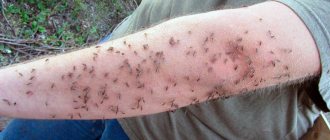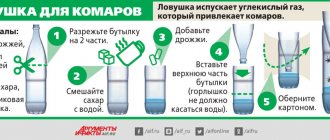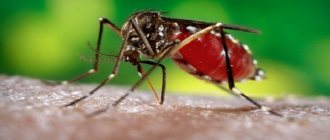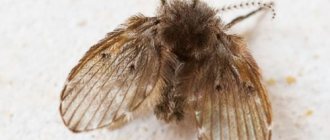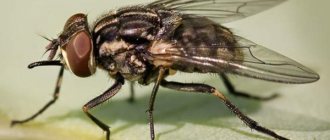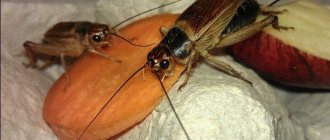Danger
Where do mosquitoes come from? They enter a house or apartment through open doors, windows, cracks and cracks. If a female mosquito laid larvae in the warm season, this question disappears by itself. Mosquitoes are not at all harmless insects. In addition to the fact that they make unpleasant annoying sounds, bite and prevent you from falling asleep at night, mosquitoes often become carriers of dangerous diseases, infections and allergic reactions.
These insects attack several people at once. Therefore, they can easily transfer an infection from an infected person to a healthy person. They are the cause of malaria, tularemia, yellow fever, and lymphatic filariasis. In addition, a mosquito bite itches. Sometimes such trauma to the skin leads to the appearance of scars.
Reproduction and stages of insect development
Male mosquitoes are not capable of biting humans; their main role is to mate with the female. To maintain strength, they feed on the nectar of flowers. Within a few days, the males mate, at which point their life cycle is exhausted and they will soon disappear. Insects breed in the warm season, but not in the hottest months.
There is a simple explanation for why mosquitoes drink blood. After fertilization, female mosquitoes need biological fluid to form offspring. If they fail to find a blood source, the mosquito eggs will still mature. During blood sucking, the insect absorbs nutritious blood rich in protein. The number of times a mosquito bites depends on its saturation level. The amount of blood absorbed directly affects how many eggs an individual lays. A female mosquito can bite up to 8 times a day. She herself determines how much blood she needs to receive. After each digestion of blood, a certain number of eggs are formed in it.
Mosquito breeding
Every 2-3 days, a female mosquito lays eggs by shaking them into a pond or a regular puddle. At one time she is able to lay from 20 to 200 eggs. You can watch how mosquitoes are born yourself. The insect flies chaotically over the water surface to spread eggs throughout the body of water.
Once in the water, the eggs, in the form of elongated sticks, remain on the algae. The birth of a mosquito begins in stages:
- The egg has a small bubble filled with air, which prevents it from sinking to the bottom of the reservoir. After 3-7 days, a larva emerges from it.
- The larva looks like a small worm, which, with the help of brushes in its mouth, is capable of filtering up to a liter of water per day in search of food. Mosquito larvae can feed on small pieces of algae, microorganisms, and bacteria. To breathe, the young individual must expose the lower edge of its abdomen to the surface of the water, where the simplified respiratory organ is located. The life of the larva lasts 2-3 weeks, then it molts and pupates.
- The pupa is a cross between a worm and an adult. The body, curved in the shape of a comma, looks like a tadpole. The mosquito pupa is not able to feed; it stays near the surface of the water to breathe. After a few days, limbs and wings appear, and a fully formed mosquito flies off from the water surface.
Peculiarities
Where do mosquitoes come from and how long do they live after they bite? Most often, these insects enter the house from the street, where they breed. That is why they cause so much inconvenience to humans in winter. Mosquitoes are weaker and easier to kill. The mosquito attacks a person as soon as it senses him. An insect can hunt for a long time, because its main goal is to bite.
During a bite, a kind of exchange occurs: the mosquito takes blood from its victim and gives saliva. It prevents coagulation and the insect is able to “enjoy” its prey for a long time. The substance found in the mosquito’s saliva causes discomfort at the affected area, causing redness and itching. It causes severe allergic reactions in people with sensitive skin. The lifespan of female mosquitoes is approximately forty to one hundred days. It all depends on the ambient temperature. Males live much shorter lives.
Kinds
Where do mosquitoes come from after winter? Most often, these insects lay eggs in apartments, entering them through basements or stairwells. It is not difficult for them to get into living quarters, especially during peak migration periods. With the onset of spring and sharp warming, their activity increases. There are about three hundred species of mosquitoes in the world. The most dangerous is malaria. The threat is that they can feed on the blood of dead animals and then move on to humans. The following are the types of these blood-sucking insects:
- Squeak mosquito. The most common type that quickly adapts. This mosquito is wild, lives in forest areas, parks, but is also found in cities. Some mosquitoes of this species have adapted well to civilization; they are able to reproduce in extreme conditions. “City ones” do not hibernate, so they are easy to meet even in winter.
- Malarial. A tropical mosquito in whose stomach small worms develop. When bitten, they enter the human lymphatic system, where they multiply.
- Tigers. This species also poses a danger to humans and becomes a carrier of dangerous diseases and infections.
Where do big, non-biting mosquitoes come from? These insects frighten people with their appearance. They are also called centipedes. The large species lives in the wild, near water bodies. Almost never found in cities.
Can you get AIDS from a mosquito?
The question of whether disease vectors such as mosquitoes can transmit AIDS is of interest to many people. To begin with, you should understand that AIDS is a set of disorders in the body, the consequence of which is the human immunodeficiency virus (HIV). Therefore, based on the above, it becomes clear that you can only become infected with HIV, but not with AIDS.
AIDS and mosquitoes
We hasten to reassure everyone that HIV is not transmitted through a mosquito bite. This fact is explained by the fact that the cells of the causative agent of the disease, when released into the external environment, are viable for a fairly short period. Insects that bite HIV-infected people can pose a danger only if, after a meal, an AIDS-infected person immediately strikes a healthy one.
For this reason, bloodsuckers cannot transmit hepatitis. Even if a mosquito attacks an infected person, the virus dies very quickly in his saliva. Hepatitis viruses do not survive in the digestive organs of insects, since they require hepatocytes (liver cells) to reproduce. And this is impossible due to the fact that the liver of mosquitoes simply does not exist. The causative agents of other diseases transmitted by mosquitoes (the same malarial plasmodia) are safely preserved in the saliva of insects.
AIDS is not transmitted by coughing, shaking hands or touching handrails on public transport. You cannot get AIDS by playing sports together or using a bath (toilet). You cannot become infected with HIV through a kiss, since the concentration of the virus in saliva is not sufficient for infection.
You can become infected with AIDS only through unprotected sexual intercourse, or through repeated use of syringes, razors, or piercing and tattoo tools. An expectant mother can also be infected with AIDS during pregnancy.
Where do mosquitoes come from?
The answer to this question interests many people. Mosquitoes are nocturnal insects. They reproduce quickly and are most active in humid and warm environments. They choose wet, warm and damp places to live. Where do mosquitoes come from in houses? These insects are common not only in rural areas, but also in cities. Their favorite habitats are basements of high-rise buildings, balconies, bathrooms, and garages. They often hide under suspended ceilings. During the day, mosquitoes are practically inactive. At an air temperature of 0 degrees, insects fall into so-called torpor.
Insects appear in city apartments in spring and autumn, when the temperature outside is still or no longer comfortable for them. Sometimes mosquitoes become active in winter, crawling out of basements and secluded places. They accumulate where there is a lot of water. They enter apartments through ventilation, elevator shafts, staircases, and garbage chutes.
How to fight mosquitoes?
Use different scents. We talked about them above. Eucalyptus oil, clove oil, cedar oil, as well as tomatoes, citrus fruits and geranium help in the fight against mosquitoes. They can be used not only on window sills, but also in the rooms where you sleep. You can put a small amount of oil on a napkin or saucer and place it by your bed. The oil can also be used in candle holders for aromatherapy. But look at your personal tolerance for smells.
You can buy an electric fumigator or a mosquito coil. These products can be purchased at any store. They can be in liquid form or in the form of platinum. They are easy to use. You just need to plug the device into a power outlet and that’s it. The liquid or platinum contains substances that, when evaporated, emit a toxic odor for mosquitoes and contribute to their destruction. The action of the electric fumigator is fast. Within two hours you can already forget that you had mosquitoes. But it is worth noting that the vapors released from the device negatively affect the human body. Therefore, you should follow the operating instructions and install it only with open windows in the room. When you run out of liquid, you can use eucalyptus oil. It is as effective as the chemical.
Mosquito coils can be used directly in open areas. That is, on the street. It is very convenient when you are relaxing in nature. The operation of the device is the same as in an electric fumigator, but only without liquid.
An option to combat mosquitoes is to bait them in basements. Why in the basements? Because this is where mosquitoes can wait out the cold seasons and breed. When it comes to a high-rise building, disinfection of basement paving must be carried out several times a year. Especially before summer and spring. By disinfecting, you can get rid of all kinds of parasites that can enter the living space through ventilation or sewerage. You can call a special service that deals with this. First collect the signatures of the residents of the house and submit an application.
Or you can contact the housing office so that they can carry out such robots. But not only the basement needs to be disinfected; attics should also be included in such treatments. Since they are also a source of spread of mosquitoes and all kinds of insects.
Sewerage repair. This range of work is important not only for the purpose of improving the drainage system, but also as work to eliminate pests. Sewage is not only an environment for dangerous bacteria and microorganisms, but also an excellent place with an attractive smell for mosquitoes. There they will definitely find comfort and coziness for themselves. And it is from there that they can get into the house and begin their action there.
When fighting mosquitoes, pay attention to all possible ways they can get into your apartment. Eliminate as much as possible. Don't forget that the most basic methods can help much more effectively than anything else. Wide open windows without a mosquito net, sources of constant dampness, unsealed windows and balconies, living in places near a river, lake, septic tanks, sewerage provoke the appearance of mosquitoes in your apartment.
Causes
Where do mosquitoes come from? Their appearance in a house or apartment is not related to the arrangement of life and other factors. The specificity is that they always settle next to a person. The main way they spread is migration. Insects breed close to a food source. The appearance of mosquitoes in the city is due to rainy and warm weather. They enter apartments from the street, especially if the summer is rainy and warm.
During unfavorable periods (drought, severe cold), they wait in shaded, as humid places as possible. Mosquitoes often hide in houses and apartments:
- in curtains, on ceilings or walls - where there is little light;
- behind pictures, cabinets, under carpets;
- in window frames, narrow cracks.
Mosquitoes breed in dark and damp places. However, the survival rate of larvae in residential areas is low.
Mosquito attractants
Mosquito traps
Many products have been created to protect against mosquitoes, which are produced in the form of aerosols, sprays and creams. Folk remedies are also popular. However, traps or, as they are more often called, mosquito killers, are considered safer.
- A heat trap is a means of attracting mosquitoes using heat. Such units are designed for use both indoors and outdoors. The most popular electric lamps are the Terminator and the SITITEK Sadovyi-M mosquito killer.
- A carbon dioxide trap imitates human breathing. Bloodsuckers perceive the gas released into the atmosphere as a trace of human activity, feeling it tens of meters away.
- A water trap is distinguished by the presence of an open tray with water. After all, it is in water that female mosquitoes usually lay their eggs. Therefore, it is enough to periodically add and replace water, disposing of caught insects.
- Electric traps kill mosquitoes using an ultraviolet lamp, the light and heat of which attracts them. It is equipped with a built-in grid to which voltage is supplied. As soon as the insect touches it, it dies from a discharge of electric current.
- The propane trap is intended for outdoor use only. It works by releasing CO2 and special lures that imitate the smell of human sweat. One of these devices is the Kornami no KRN-5000 turbo PRO device.
Many craftsmen make their own mosquito traps using plastic bottles or paper soaked in a mixture of rosin, linseed oil and honey. Safety and accessibility are the main advantages of such devices.
How to get rid of it?
Where do big mosquitoes come from? Despite their terrifying appearance, they are absolutely harmless to humans. These mosquitoes do not attack and live in forested areas and wetlands. If they fly into a living space, it is by accident. They are usually attracted to warmth and bright light. There are many ways to get rid of insects: chemicals, traditional methods, or calling specialists to your home. Natural remedies are considered one of the safest and most effective. For example, a sprig of elderberry and the smell of walnuts and pine nuts can drive mosquitoes out of your apartment forever.
